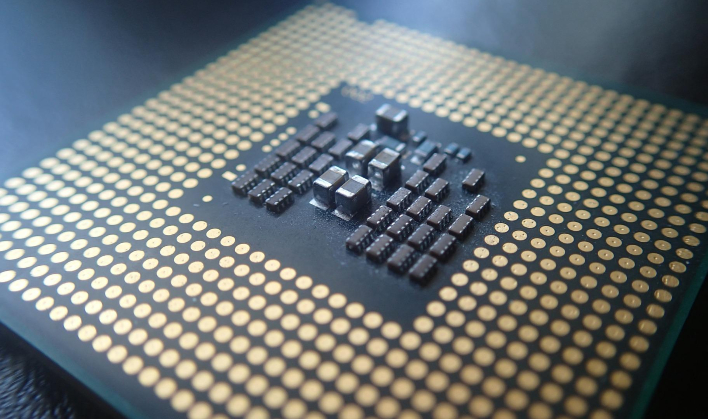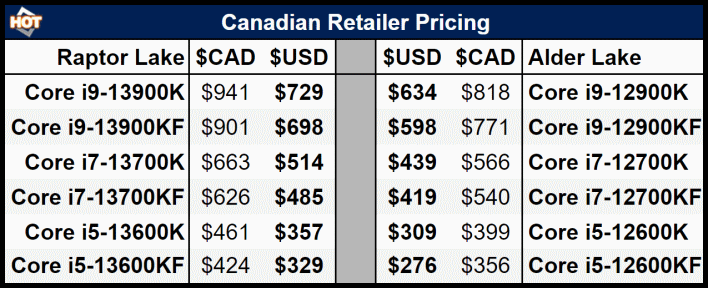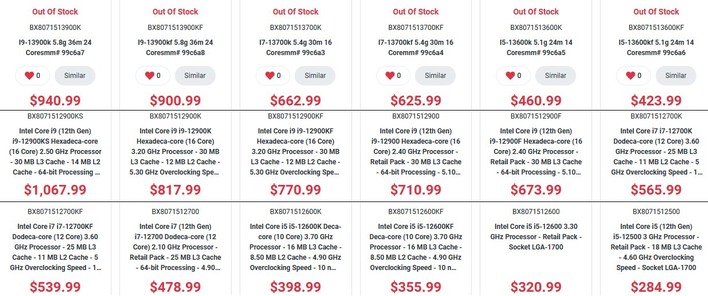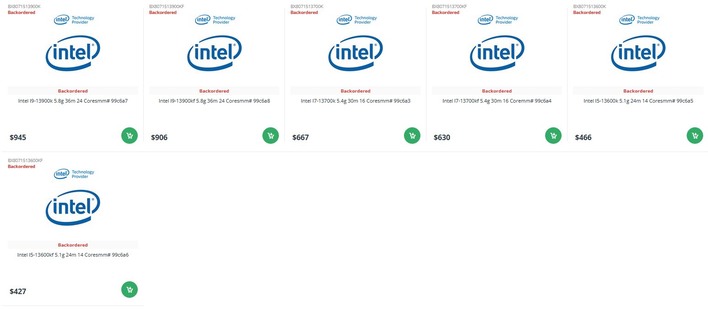Intel Raptor Lake CPUs Have Started Appearing In Retailer Listings, Is The Price Right?

These price leaks come from the same source as the previous: @momomo_us on Twitter. They appear to be from the same shop as the last leaks, too. While the initial leak was just a screenshot of the six Raptor Lake CPU prices, @momomo_us helpfully added the Alder Lake CPU prices alongside in a later tweet. Here's that image:
Ouch. Keep in mind those are Canadian dollars, so it's not quite as dire as it first looks. Still, all of the Raptor Lake CPUs are more expensive than their Alder Lake counterparts, by as much as $100 USD. Here, we made a chart with the currency conversions for you.

Intel's 13th-gen Core CPUs ending up more expensive than their previous-generation predecessors is no surprise; Intel CEO Pat Gelsinger said as much during the company's earnings call back in July. A bump of $100 USD or more is pretty sharp, though. It's possible that, given the early nature of these listings, they're not final pricing.
However, @momomo_us corroborated their leak with another leak, this time from a different vendor. The prices are nearly identical, generally being just $5 more than the prices at the other retailer. That certainly lends some credence to these values being very near final pricing.
It's worthwhile to consider that these are much more potent processors than Alder Lake. Raptor Lake seems to sport an extra four-to-eight cores at every performance tier, and if the rumors are true, drastically increased clock rates, too. Many users could likely stand to step down a tier in the product stack—gamers aren't likely to get much out of the extra cores that a Core i7 or Core i9 gains over a Core i5.
That's all well and good for comparisons against the socket-compatible previous-generation parts, but the real comparison will be against AMD's Ryzen 7000 processors. If the leaked pricing that we saw last week for those products is accurate, AMD could have a tough battle on its hands. We shouldn't have long to wait to find out.



